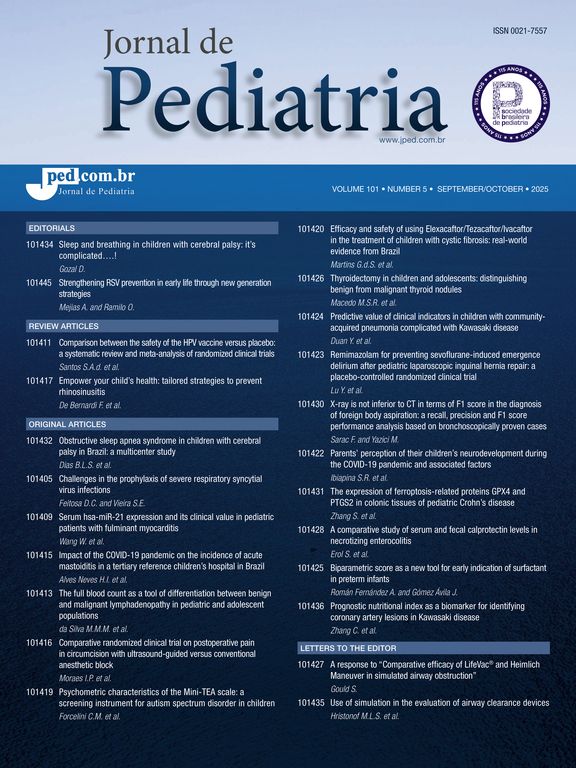To compare Alberta Infant Motor Scale scores for Brazilian infants with the Canadian norm and to construct sex-specific reference curves and percentiles for motor development for a Brazilian population.
MethodsThis study recruited 795 children aged 0 to 18 months from a number of different towns in Brazil. Infants were assessed by an experienced researcher in a silent room using the Alberta Infant Motor Scale. Sex-specific percentiles (P5, P10, P25, P50, P75 and P90) were calculated and analyzed for each age in months from 0 to 18 months.
ResultsNo significant differences (p > 0.05) between boys and girls were observed for the majority of ages. The exception was 14 months, where the girls scored higher for overall motor performance (p = 0.015) and had a higher development percentile (0.021). It was observed that the development curves demonstrated a tendency to nonlinear development in both sexes and for both typical and atypical children. Variation in motor acquisition was minimal at the extremes of the age range: during the first two months of life and from 15 months onwards.
ConclusionsAlthough the Alberta Infant Motor Scale is an instrument that is widely used in both research and clinical practice, it has certain limitations in terms of behavioral differentiation before 2 months and after 15 months. This reduced sensitivity at the extremes of the age range may be related to the number of motor items assessed at these ages and their difficulty. It is suggested that other screening instruments be employed for children over the age of 15 months.








